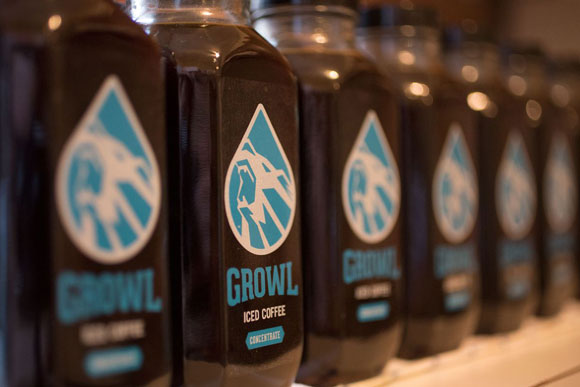Brandon Partridge thought he’d move to a food-and-beverage hub like Chicago or New York before launching his line of
drinkable yogurt products this year. Cities like these, where businesses have already paved the way for the industry, would be an obvious option for any food entrepreneur.
But Partridge, who got his MBA from
Georgetown University, lives in and loves the District — so he decided to stay.
“Even though the economic ecosystem isn’t oriented toward the food-and-beverage industry, we have a very strong food culture,” Partridge says. “It’s actually a tremendous area to launch a product like this.”
Partridge is among a growing number of food-minded entrepreneurs putting down roots in a city that’s more in touch than ever with its culinary side. While the types of food businesses that every city needs (restaurants, food trucks, coffee shops) have been taking off here for a while, a new breed is choosing D.C. as the place to launch products and concepts that could expand beyond its borders.
Matthew Snyder says he’s been overwhelmed this year with local support for his
Growl Cold Brew Coffee, brewed for hours in a commercial kitchen near Dupont Circle. He says that’s helped make up for how difficult it can be to get those drinks to markets nearby.
“The challenging part about D.C. is some of the logistics,” Snyder says. “Parking and getting supplies, just all those little things that [come with] living in the city.”
�You have to guess a little bit. You have a plan for growth and sometimes I�ve gotten it right and other times I have to scramble.�
The local market can also be a bit unpredictable. Snyder has been trying to grow his business “organically,” choosing to sell his bottled coffee concentrates at small shops like
Salt & Sundry in
Union Market and
Smucker Farms of Lancaster Co. near U Street.
But because of high demand, he quickly exceeded the amount of beans he thought he’d need each week from his supplier, Annapolis’
Ceremony Coffee Roasters — and then he exceeded it again.
“You have to guess a little bit. You have a plan for growth and sometimes I’ve gotten it right and other times I have to scramble,” Snyder says.
Such is the life of an entrepreneur. Throw perishable or hard-to-regulate food items into the mix, and things get a little more complicated.
Making products in D.C.
Just ask Conan and Genevieve O’Sullivan, who are in the midst of launching the first D.C.-based creamery in recent memory — or at least the first since transporting raw milk across state lines became, well, tricky.
Their
Sona Creamery and Wine Bar is slated to open in November near Eastern Market, where an overhauled 2,400-square-foot space will offer views of cheese being made in vats and finished wheels maturing on shelves in two aging caves.
The O’Sullivans, who moved from Washington State last year to start the business here, do have a sense for what will star on the menu beside the cheese: They’ll offer wines from the Pacific Northwest on tap, by the glass and in tasting flights.
That decision, they say, was easy. The cheese is another story.

Since D.C. doesn’t have any cows of its own, the owners would need to get the unpasteurized product they typically make into cheese from a nearby state. While it’s not legal for raw milk to be sold across state lines for individual consumption, the O’Sullivans aren’t yet sure where they stand as a small business looking to process the milk into cheese.
“It’s all going to come down to what the health department wants us to do,” Conan O’Sullivan says with a shrug.
Seeing how difficult it would be to manufacture his
Ibex Drinkable Yogurt in the District, Partridge decided to use a New York state manufacturer that already makes products like
Siggi’s yogurts for Whole Foods stores.
While plants not far from D.C. process liquid milk, they aren’t set up for milk-based products like yogurt (and Partridge wasn’t keen on building his own plant).
"We have a very strong food culture. It�s actually a tremendous area to launch a product like this.�
“You would be talking several million dollars just to assemble the equipment,” says Partridge, who worked in the dairy products division at Nestlé’s D.C. office before launching his company two years ago.
Partridge recently wrote a column for the
Washington Business Journal about his struggles as a food entrepreneur to be recognized by a District government that is zeroed in on fostering tech startups, as he put it. He tweeted the mayor, asking that he "support entrepreneurs, not pick winners," noting successful startups like Bethesda's
Honest Tea that have launched in the region.
Partridge said he can’t help but notice all the interesting early-stage companies launching in the District, and the food scene is far from an exception. His first products should start to appear on shelves in area
Yes! Organic Market and
MOM’s Organic Market stores by the end of the summer.
“In the time I’ve been doing this, I used to complain that there were no other food companies in DC,” Partridge said. Now, “there’s a real food company culture here.”